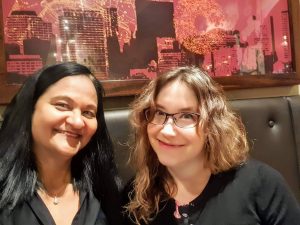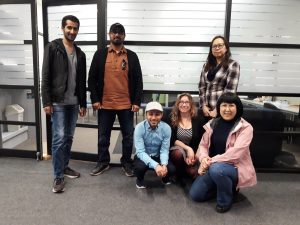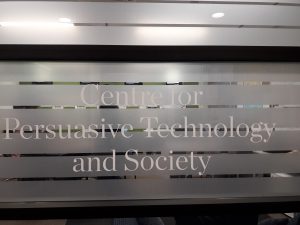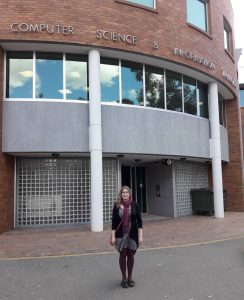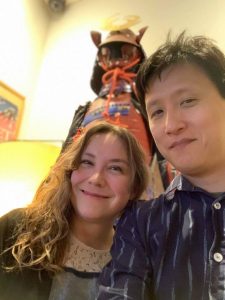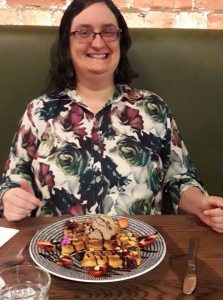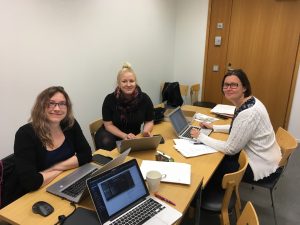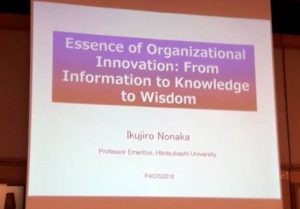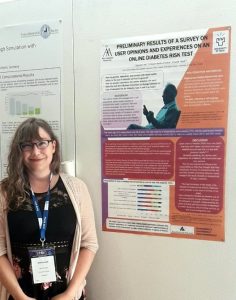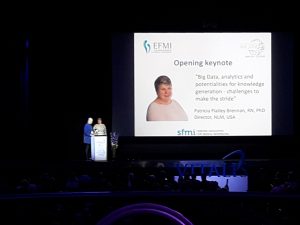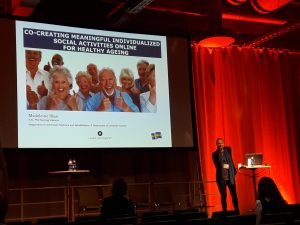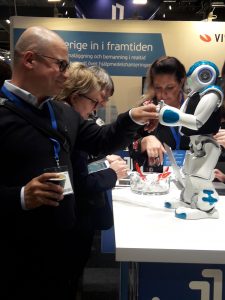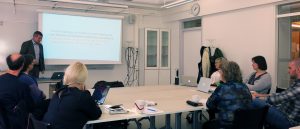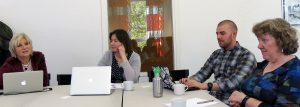The biannual conference Well-being in the information society was organized in Turku on August 27-29, 2018, with the theme “Fighting inequalities”. The conference strives to be multidisciplinary and attracts delegates from several disciplines and well-being was in this conference analyzed from different viewpoints including wealth, the digital world, social policy and health. Several of the presentations were of interest also for the project HIBA.
The first keynote speaker was Director Sascha Marschang from the European Public Health Alliance, who talked about opportunities and gaps in digital health in Europe. Challenges include an ageing society and growing numbers of non-communicable diseases, as well as barriers to healthcare access. A digital divide is still a reality in Europe with e.g. elderly, lower educated and minority groups excluded, and there is a need for digital health literacy, that is a complex concept and involves several competencies, including basic, digital, media and health literacies. eHealth can provide opportunities and complement conventional healthcare, it can engage people, be fun, timely, accurate, and tailored but cannot replace face-to-face contact and Sascha Marschang claimed that health and eHealth must work in harmony. He also called for research into actual use of eHealth!
Roland Trill from Flensburg University of Applied Science, Germany, continued on the topic health literacy and had combined the eHEALS scale and the Digital Health Literacy Instrument (DHLI) to study current digital health literacy of diabetes in Germany. He called for further research on digital health literacy and claimed that health care professionals are target groups for improving this literacy. Anne-Marie Tuikka (University of Turku) showed that the claims by the keynote speaker seemed to be true. She had studied nationwide data gathered by the National Institute for Health and Welfare and focused on the digital disability divide, defined as the gap between disabled and non-disabled people. The results showed that internet use was related to age, education level, marital status, and employment, and that people needing disability services used internet less than others. Internet can have an empowering impact on disabled people, but the results indicate that there could be a digital disability divide in Finland.
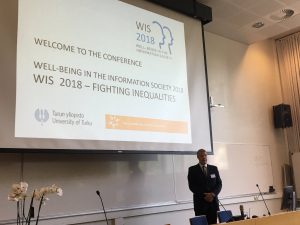
The conference chair, professor Reima Suomi, opening the WIS 2018 conference (photo: Gunilla Widén)
Nilmini Wickramasinghe from Deakin University, Australia, presented a study on the use of games for controlling diabetes and obesity. A pilot study already showed that there is an interest in using games for this purpose. Vitalija Petrulaitiene (Tampere University of Technology), on the other hand, presented and overview of how employee well-being can be supported through digital services, especially applications related to fitness, nutrition, or ergonomics. Marina Weck from Häme University of Applied Science presented digital assistive technology that means to use ICT for the support of everyday tasks and activities among elderly. A pilot study found that ageing people’s needs and preferences for digital assistive technology were positive, although they were not yet familiar with the latest devices or applications, and hence, for example, healthcare service providers could increase the utilization of technology and facilitate the integration of digital assistive technology. Hanna-Leena Huttunen (University of Oulu) had found that patients suffering from migraines are interested in using wearable sensors and mobile applications to manage their symptoms, especially to identify early symptoms and help them in everyday life.

The conference dinner was held at Turku Castle
Susanne Hämäläinen (Karelia University of Applied Sciences) and Päivi Sihvo (Savonia University of Applied Sciences) claimed that digitalization has not progressed as quickly as desired in social and health care and that both employees and citizens lack know-how and education about new technological developments. Digitalization should help customers and increase their welfare and that is why eProfessionals that can act as moderators between IT staff and health professionals are one important solution for digitalization. Tiina Nokkala (University of Turku, School of Economics) said that health information systems are not patient-centred, in the best case patients can look at their own medical records, but not add anything to them. There is a need for shared decision-making, and being able to make own entries can enhance feelings of management and empowerment among patients, but in order for patients to make their own entries in their records (e.g. blood sugar or blood pressure measurement data), there is a need to use similar metadata as for entries by professionals. Jani Koskinen from Turku University School of Economics, on his part, suggested that as modern healthcare relies strongly on technology and information systems there is also a special need for eHealth ethics. eHealth ethics could be the intersection of the traditional codes of ethics used within the two fields of healthcare and information technology or systems.
Kristina chaired a session on digital health and later presented a short paper by Hai Nguyen and herself based on first results from the survey of use and experiences of the online diabetes risk test at the website of the Finnish Diabetes Association. The paper is found in the proceedings. The results indicate that an active information-seeking style is sígnificantly related to intentions to seek more information in the case of increased risk of diabetes type 2, and that this has to be taken into consideration when providing information on websites offering self-assessments.
 From ANU Institute for Communication in Health Care professor Diana Slade kindly found time to chat with me about the research done in their research group and in HIBA.
From ANU Institute for Communication in Health Care professor Diana Slade kindly found time to chat with me about the research done in their research group and in HIBA.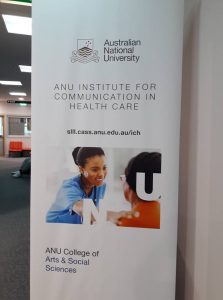 I also had lively discussion with Associate Professor Hanna Suominen, originally from Turku. The topics varied from strategic Our Health in Our Hands research initiate to differences of doing research and living in Finland and in Australia.
I also had lively discussion with Associate Professor Hanna Suominen, originally from Turku. The topics varied from strategic Our Health in Our Hands research initiate to differences of doing research and living in Finland and in Australia.

